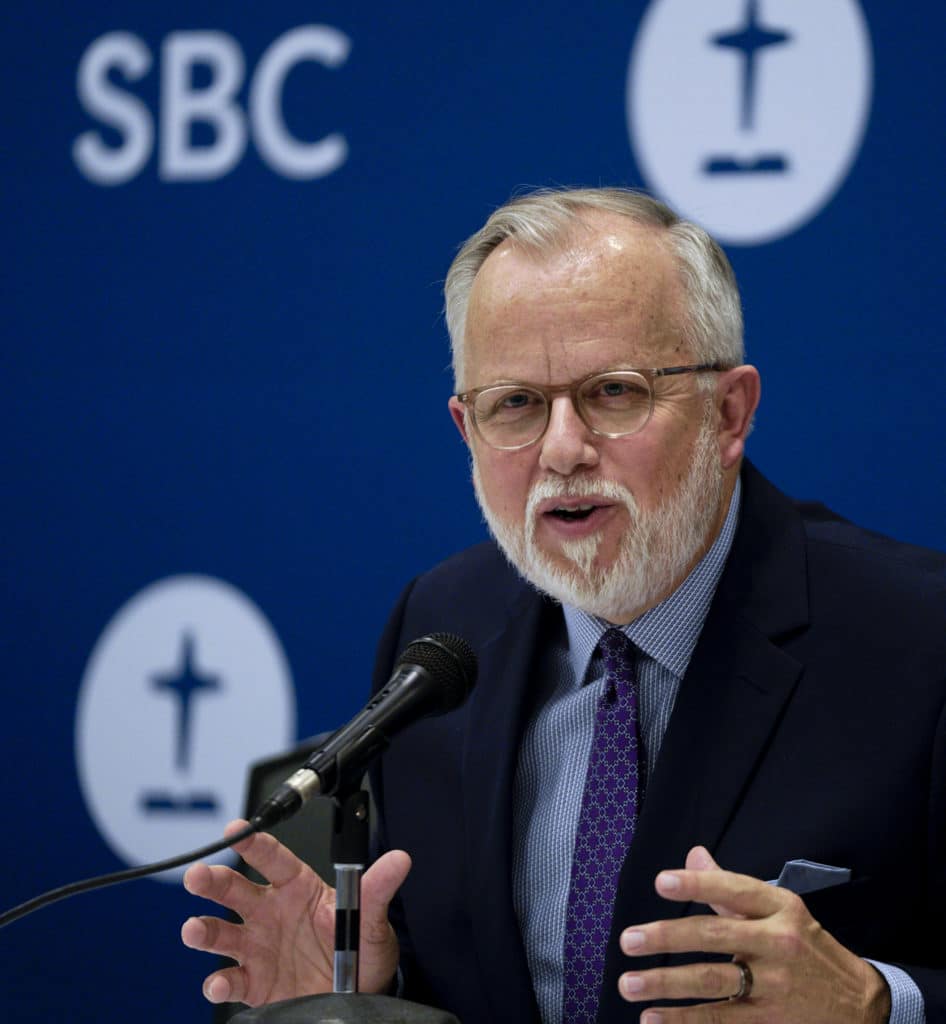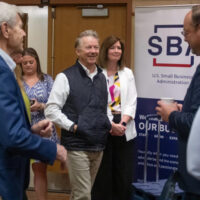The Southern Baptist Convention elected the Rev. Ed Litton as its president Tuesday, signaling a defeat for the “hard right” in the nation’s largest Protestant denomination, Sarah Pulliam Bailey reports for The Washington Post.

Litton narrowly defeated Georgia pastor Mike Stone, the favored candidate of the right wing, with 52 percent of the vote in a runoff election at the group’s annual meeting in Nashville.
“For the past few years, the convention has been mired in debates over racism, politics and sexual misconduct that mirror many of the same debates in the Republican Party,” Bailey writes. “In recent weeks, as leaked letters and backroom deals dominated conversations among Southern Baptists, Litton, pastor of First Baptist Church North Mobile in Alabama, pitched himself as someone who would lead the convention toward more racial reconciliation. Fred Luter, the first and only Black pastor to serve as president of the SBC, nominated Litton for the position.”
Critical race theory, a framework for examining structural racism, was a hot topic at the meeting.
“Opposition to CRT among SBC leaders led to an exodus of Black pastors over the past year and some feared more would leave if the convention had voted to condemn it,” Bailey notes. SBC considered several proposed resolutions concerning the notion, but ultimately adopted a resolution that condemned racism but didn’t address CRT specifically.
Ed Stetzer, who once led the SBC’s research arm, LifeWay Research, said there was some concern before the meeting that more conservative members would push back against recent SBC efforts to advance racial reconciliation. But “the crowd was younger and more diverse than most expected, and that crowd carried the day,” he told Bailey.






